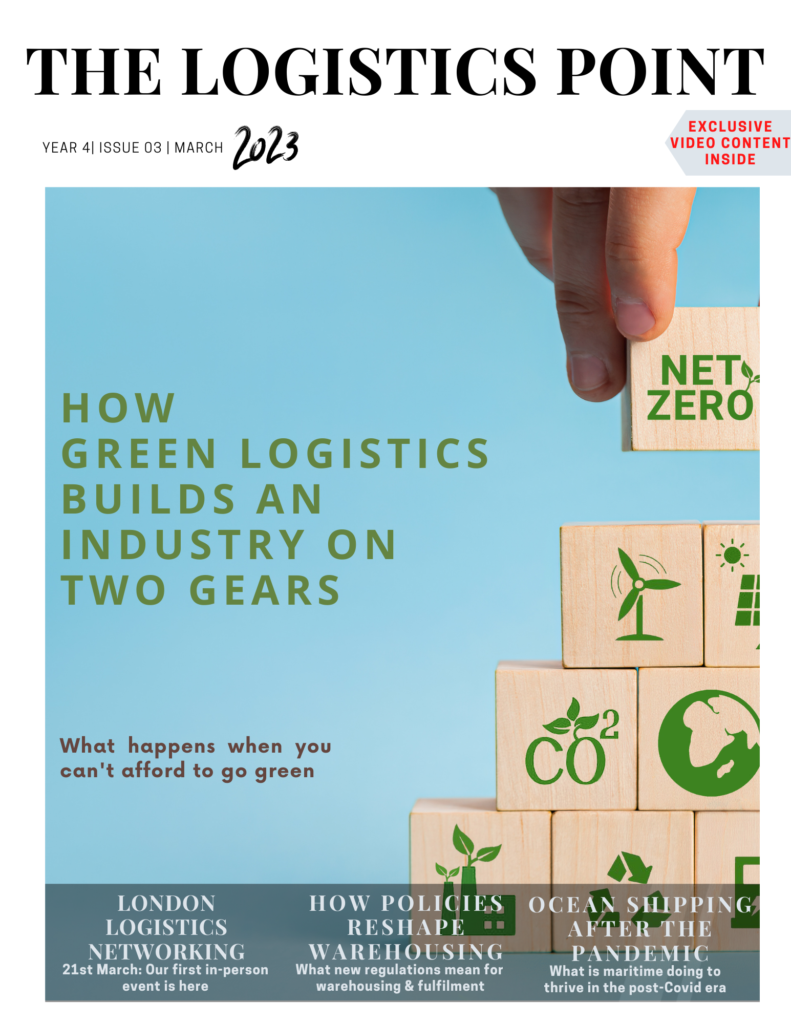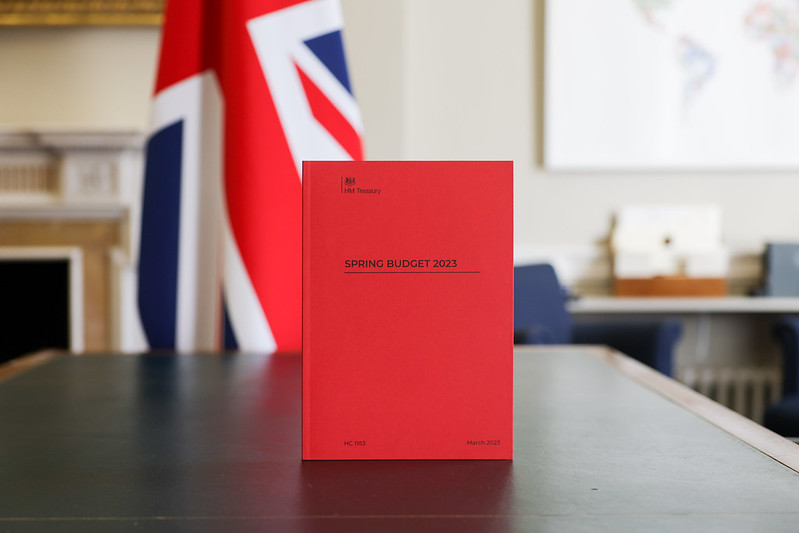Logistics specialists have reacted to the Spring Budget. And here is what they had to say.
In response to the Spring Budget, Logistics UK is delighted that – following multiple calls from the business group – the 5ppl fuel duty cut originally introduced in March 2022 is to be retained for a further 12 months.

Logistics UK’s Chief Executive, David Wells, comments: “Logistics is the UK’s system for growth and today’s budget announcement was an opportunity for the Chancellor to ensure continued – and potentially increased – investment in green growth and fulfilling careers, while keeping prices down in the shops.
“Today’s announcement that the 5ppl cut in fuel duty is to be retained for a further 12 months is very welcome news for logistics businesses, particularly SMEs – who make up 99% of the industry, and traditionally operate on low margins.
Logistics UK has consistently urged government to extend this cut, while maintaining revenue levels through VAT and other sources. Logistics is at the heart of every sector of the economy; this decision recognises the importance of managing logistics costs to avoid further inflationary pressures on business and consumers. This should help to ensure businesses have the funds to invest in productivity, growth and greener technologies, alongside the new policy for full capital expenditure announced as the successor to the super-deduction (providing it encourages the transition to a zero-carbon economy).
“However, Logistics UK is dismayed by the lack of support to help businesses with energy costs and our sector’s transition to a low carbon economy, something which the government has urged industry to commit to. This is a missed opportunity. Our members will also be concerned about proposals for a reformed HGV road user levy and together we will be seeking urgent clarification as to the detail involved.
“While we are also disappointed there was no reference to much-needed Apprenticeship Levy reform, it is encouraging that government is focused on supporting people into work, which will help to relieve the existing skills gaps in industry and the wider UK economy.

Logistics UK will work with its members to scrutinise the detail and identify what these measures will entail, such as the announcement of skills bootcamps and Returnerships, and whether these will provide a credible pathway into logistics.”
David Bushnell, Director of Consultancy and Strategy, Fleet Operations:
“The Treasury is contending with considerable economic challenges. Pressure to keep a tight grip on the UK fiscal environment combines with a need to help consumers and businesses navigate the cost-of-living squeeze. Add government sustainability targets into the mix and the Chancellor faced a tough balancing act with his Spring Budget.
“For fleets, the decision to freeze fuel duty and retain the 5p reduction for a further year comes as welcome news for operators struggling with a burgeoning cost crisis. Pump prices may have fallen back from their 2022 summer peak, but they remain markedly higher than in recent years. Margins, consequently, continue to be hit hard.
“The move, however, will not be well received by those looking to accelerate transport electrification. Environmentalists will be buoyed by a pledge of up to £20 billion to support carbon capture, but the lack of any significant new measures to further incentivise electric vehicle (EV) adoption and infrastructure roll out signals a missed opportunity.
“EV adoption remains in its infancy and with high energy costs continuing to impact drivers reliant on public charging networks, more must be done to achieve a timely transition to net zero transport. Cutting the public charging VAT rate, to match the rate for domestic electricity, would have been a good place to start.”
“Elsewhere, fleets buying vans and trucks will benefit from a new policy of ‘full expensing’ but the importance of leasing as an integral ingredient to cost-efficient fleet operations remains unrecognised. It is disappointing that the industry’s call for a super deduction to cover leased assets has been ignored.”
Comment attributed to Barney Goffer, UK Product Manager at Teletrac Navman UK
“The Chancellor’s Spring Budget held some interesting and welcome elements for fleet operators and construction businesses.
“As predicted, the 5p fuel tax cut that was announced as a 12-month measure was upheld and there was also a continued freeze on the increase in fuel duty. And with the announcement that the OBR is predicting inflation will fall from 10.7% to 2.9% by the end of 2023, the pain of pump prices should continue to reduce. For the general public this is a saving of £100 a year on average, so the savings for fleets and equipment operators should be comparable.
“Corporation tax rise is indeed rising, from 19% to 25% but with a tiered approach the Chancellor has suggested that only 10% of UK businesses will be paying the full 25%. This is because the Chancellor was adamant this was a budget for growth and investment is key to that.
“While the Super-Deduction tax relief is indeed going, the Chancellor is introducing a new policy of full capital expensing for the next three years, meaning every pound invested in tech, plants, or machinery is fully deductible from taxable profits.
“While ‘plant and machinery’ needs more definition – for instance, are mobile assets considered machinery – this is an extremely important point for fleets looking to expand, replace fleet, switch from ICE to EV, or digitally transform operations.
“While we await the finer details, the initial signs in the Chancellor’s speech are potentially positive for the UK’s transport and construction sectors.”
Marco Forgione, Director General of The Institute of Export & International Trade said:
“We are pleased to see the Chancellor announce policies which will further strengthen levelling up in the nations and regions, which we called for in our letter to him prior to the Spring Budget. These new powers for UK mayors and combined authorities in skills, energy and infrastructure will benefit businesses and exporters while helping to address regional inequalities.
The 12 new investment zones will also accelerate much needed research and development in the UK’s ‘most budding industries’ and this is essential to ensure the UK remains competitive in trade in services. Over 50% of our members are in the manufacturing industry and they will be looking closely what opportunities these investment zones will mean for them. We also look forward to providing insights and feedback to the government, in the coming months, in relation to their announced package of measures intended to simplify customs import and export processes for traders.
However, despite many positives in the Budget, we hoped to see more specific support for MSMEs. A targeted industrial strategy which brings together a clearly defined import and export strategy is essential to this and the recent formation of the Department for Business and Trade should be an opportune moment to make this happen. We will continue to make representations to government to make this a reality and to discuss the formation of a specific government taskforce which considers the needs of MSME exporters in particular.”


